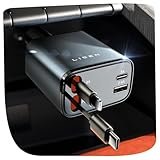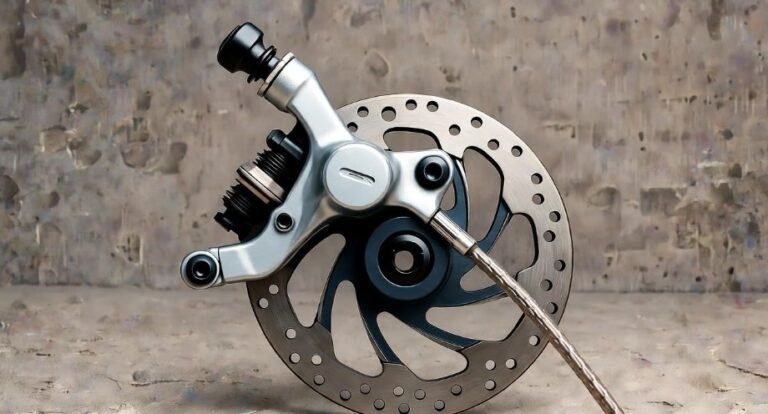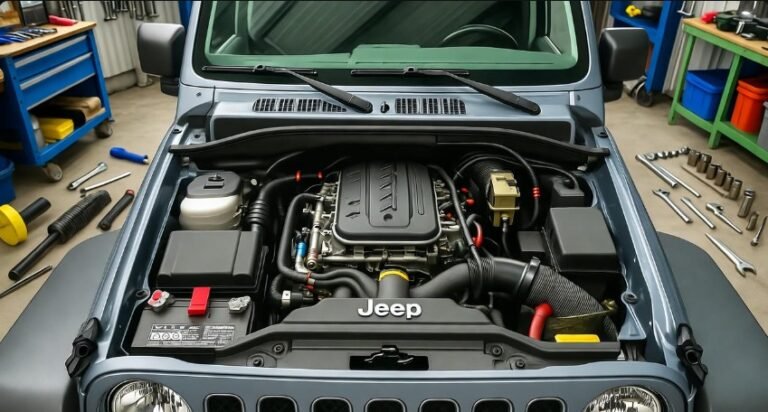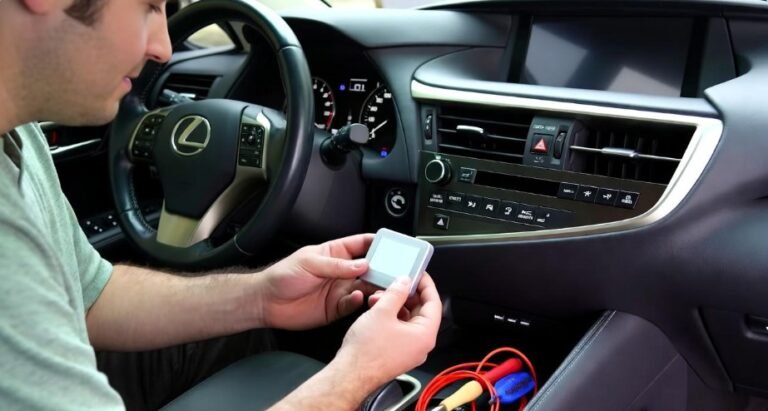Should I Buy a Car With a Salvage Title? Unveiling the Truth
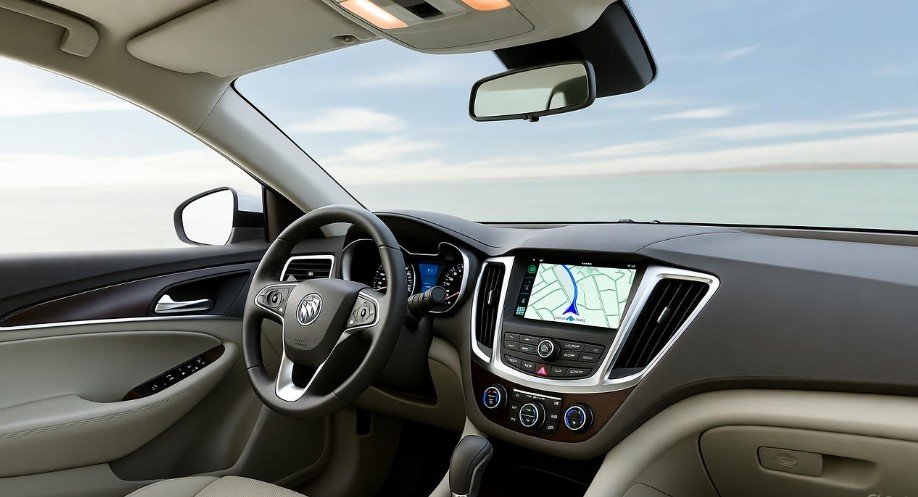
Buying a car can be exciting, especially when you spot a deal that seems too good to be true. One situation where buyers often feel this excitement is when they come across a vehicle with a salvage title. These cars are usually priced much lower than similar models with clean titles, which makes them tempting. However, the question almost always comes up: “Should I buy a car with a salvage title?” The answer isn’t simple because it depends on your knowledge, risk tolerance, long-term plans, and how much time and effort you are willing to invest.
A salvage title means the vehicle has been declared a total loss by an insurance company due to damage, theft recovery, flood exposure, or sometimes because repairs were considered too expensive at the time. While some salvage cars are repairable and can be restored to reliable condition, others may hide serious issues that affect safety, lifespan, and resale value. In this article, we will break down everything you need to know in a simple, conversational style. We’ll explore the benefits, risks, emotional considerations, and practical steps to help you decide whether buying a salvage title car is a wise choice for your situation.
What Does a Salvage Title Mean?
A vehicle earns a salvage title when it has been substantially damaged or written off by an insurance company. The damage might come from a major accident, flood, fire, hail, or vandalism. In some cases, the damage might not be obvious. For example, a car could be stolen and stripped of parts, and even after recovery, the insurers may classify it as salvage. On paper, this means the vehicle was once considered unfit for the road.
The term “salvage” doesn’t automatically mean a vehicle is dangerous or worthless. It simply indicates a past event that led the car to be labeled uneconomical to repair at that moment. After repairs, the vehicle may undergo inspection, and if it passes, it may receive a rebuilt title in certain states. However, even with a rebuilt status, the history stays with the vehicle forever. Understanding this history is important because it influences cost, insurance, longevity, and resale.
Many buyers step into salvage car purchases thinking they found a hidden gem at a cheap price. Sometimes that’s true. But sometimes, repairs were done poorly, the frame may still be weak, or the engine may not function as smoothly as it appears during a short test drive. This is why inspection and research matter more when dealing with salvage titles than with clean title cars.
Why People Consider Buying a Salvage Title Car
One of the biggest reasons people think about purchasing a car with a salvage title is the lower price. It’s not unusual to see a salvage vehicle priced 30% to 60% lower than an identical car with a clean title. For someone on a budget, the price difference can feel like a lifesaver. That price cut may make it possible for someone to afford a much newer model or one with better features than they could normally get.
Another reason people are drawn to salvage cars is the challenge and satisfaction of restoring something. Some buyers love the idea of fixing cars, customizing them, or learning new mechanical skills. To them, the car is not just transportation; it becomes a project, something they can take pride in. If a buyer plans to keep the car for many years, resale value becomes less important, making a salvage car a reasonable option.
Lastly, there are cases where the damage is surprisingly minor. A car could receive a salvage title due to an inflated insurance repair estimate rather than severe physical damage. For example, airbag deployment alone is enough to label a car salvage, even if the structural and mechanical components remain fully intact. In situations like this, a knowledgeable buyer can sometimes secure a very good deal.
The Pros of Buying a Car With a Salvage Title
When considering whether to buy a salvage title car, it helps to understand the real advantages. Below are some benefits buyers often find appealing:
1. Lower Purchase Cost
Salvage cars offer a much lower price compared to cars with clean titles. This is the biggest advantage. It allows someone to own a nicer model or newer year without stretching their budget. This can be especially helpful for students, first-time buyers, families watching spending, or anyone looking to avoid large car payments.
2. Customization Opportunities
If you love working on cars, modifying them, or making them unique, a salvage car gives you flexibility. Because you already saved money upfront, you might be able to invest in upgrades such as custom interiors, high-quality tires, improved performance parts, or new technology like touch-screen radios and cameras.
3. Access to Rare or Older Models
Some vehicles that become salvage are models that are no longer made. Vintage cars, limited edition trims, and enthusiast favorites sometimes show up with salvage titles. For collectors or hobbyists, this may be the only chance to own such a vehicle.
4. Potential for Real Value
In situations where damage is minimal and repair costs are managed well, a salvage title car can serve you reliably for years. If you plan to keep the vehicle long-term and not resell it soon, the reduced purchase cost can feel like a valuable win.
The Cons of Buying a Salvage Title Car
While the benefits are attractive, there are also risks that you must understand clearly.
1. Unknown Hidden Damage
Even if a car looks fine on the outside, internal damage may still exist. Frame issues, bent suspension parts, electrical system failures, and weakened safety features are common concerns. Problems like these can appear later and cost thousands to fix.
2. Difficulties Getting Insurance
Many insurance companies refuse to offer full coverage for a salvage title vehicle. Some may only offer liability coverage. This means you may not be financially protected if the vehicle gets damaged in an accident later.
3. Limited Financing Options
Not all banks or lenders will finance salvage vehicles. This often forces buyers to pay in cash or through alternative financing at higher interest rates.
4. Low Resale Value
No matter how well the car runs, the salvage history stays with it forever. Selling the car later can be hard, and the resale price will almost always be low, even if the car is in great condition.
Factors to Consider Before Purchasing a Salvage Title Car
Before deciding to buy a car with a salvage title, you need to carefully evaluate multiple aspects. This is not a decision to rush, as overlooking details can lead to expensive mistakes.
1. Extent of Damage
The first step is understanding how severe the original damage was. Salvage titles are issued for accidents, floods, fires, or theft recovery. While some damage may be cosmetic—like a dented fender or broken bumper—other damage could affect critical systems such as the engine, transmission, suspension, or frame. Structural damage is especially concerning because even minor alignment issues can compromise safety over time. Hiring a professional mechanic to inspect the vehicle is crucial. Look for rust, cracked welds, uneven panels, or fluid leaks, as these are red flags signaling potential long-term problems.
2. Quality of Repairs
The quality of repairs is just as important as the type of damage. A poorly repaired car can become a constant headache, with recurring mechanical or electrical issues. Pay attention to misaligned panels, mismatched paint, gaps in doors or hoods, and non-factory parts. Ask the seller for repair receipts and documentation. If possible, bring the car to a trusted shop that specializes in salvaged or rebuilt vehicles. They can test the integrity of structural components, check for hidden water damage, and ensure critical systems are functioning properly.
3. Insurance Considerations
Insurance can be a tricky part of owning a salvage title car. Many insurance providers limit coverage or charge higher premiums due to the risk. Some only offer liability coverage and exclude collision or comprehensive insurance. Before buying, contact multiple insurers to confirm coverage options. Consider the potential costs of future claims—if a vehicle with a salvage title is severely damaged again, the insurance payout may not match repair costs, leaving you financially exposed.
4. Financing Limitations
Traditional banks often hesitate to finance salvage title vehicles. This means you might need to pay in cash or secure a loan from specialized lenders. Interest rates could be higher, reflecting the risk of lending for a salvaged car. Always check your financing options before committing to a purchase. Knowing how you’ll pay for the vehicle is just as important as inspecting its condition.
5. Long-Term Ownership Plans
One key question to ask yourself is: how long do you plan to keep this car? If your goal is short-term ownership or quick resale, a salvage title is usually not ideal due to low resale value. But if you plan to keep the vehicle for many years, and it’s been properly repaired, the lower upfront cost might outweigh long-term risks. Understanding your ownership timeline will help determine whether the investment is worth it.
Tips for Inspecting a Salvage Title Vehicle
Buying a salvage title car without proper inspection is like buying a mystery box—you never know what you’re really getting. Here are practical tips to help you make an informed decision:
-
Check the VIN history: Use services like Carfax or AutoCheck to trace the car’s accident history, repairs, and insurance claims.
-
Look for structural damage: Examine the frame rails, chassis, and underbody for signs of bending or welding.
-
Test drive carefully: Pay attention to steering response, braking performance, and unusual vibrations or noises.
-
Inspect electrical systems: Lights, sensors, and electronics are often affected by water or collision damage.
-
Consult a professional: Always bring a trusted mechanic for a full inspection. Their experience can reveal issues that are invisible to the average buyer.
Practical Advice When Considering a Salvage Title Car
Here’s some real-world advice that can save headaches:
-
Never rush: Take your time to research, inspect, and negotiate.
-
Budget for repairs: Even a seemingly good salvage car may require additional investment. Factor in repair costs before purchasing.
-
Prioritize safety: Don’t compromise on structural integrity or safety features just to save money.
-
Document everything: Keep repair records, inspection reports, and receipts. This protects you and can help with insurance or future resale.
-
Understand legal requirements: Different states have specific rules about salvage and rebuilt titles. Make sure you know the regulations in your area.
Frequently Asked Questions
Is it bad to buy a car with a salvage title?
Not necessarily. It can be risky, but with proper inspection, knowledge, and caution, a salvage title car can be a reasonable purchase. Avoid if you’re not comfortable evaluating damage or repairs.
Can salvage title cars be insured?
Yes, but coverage may be limited. Some insurers offer liability-only policies, while others provide full coverage at higher premiums. Research options before buying.
Why is resale value lower for salvage title cars?
A salvage history signals past damage. Buyers are hesitant to pay full market price due to perceived risk, making resale value consistently lower than clean title vehicles.
Can I finance a salvage title car?
Traditional banks may refuse loans for salvage vehicles. Specialized lenders sometimes offer financing, but interest rates can be higher.
Are rebuilt title cars safer than salvage?
A rebuilt title car has passed inspection after repairs, so it is generally considered roadworthy. However, safety depends on repair quality and adherence to standards.
Can a salvage title be cleared?
Yes. In many states, like California, a salvage title can be converted to a rebuilt title after the vehicle passes inspection and meets safety requirements.
How can I tell if repairs were done properly?
Look for proper alignment, high-quality paint, intact safety features, and functional systems. Consulting a professional mechanic is the most reliable method.
Conclusion
Deciding whether to buy a car with a salvage title is a personal choice that requires careful thought. On one hand, salvage cars offer significant upfront savings, access to rare models, and opportunities for customization. On the other hand, they come with hidden risks, including unknown damage, insurance difficulties, limited financing, and lower resale value.
The key is to educate yourself, thoroughly inspect the vehicle, and realistically assess the total costs, including repairs and potential future issues. If you have the expertise, patience, and resources to manage these challenges, a salvage title car can be a smart, budget-friendly option. However, if you’re risk-averse or plan to resell quickly, it may be better to stick with a clean title vehicle.
Ultimately, your decision should balance financial sense, safety, and long-term goals. Treat the purchase as an informed investment rather than a quick bargain, and always prioritize knowledge and caution over impulse. With the right approach, a salvage title car can become a reliable and rewarding vehicle.


